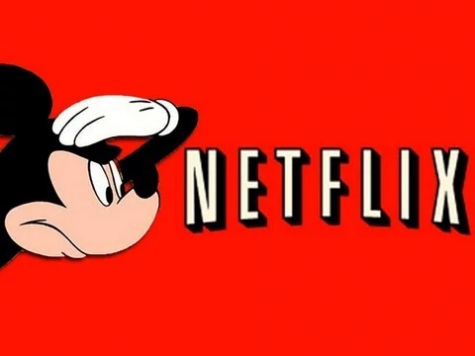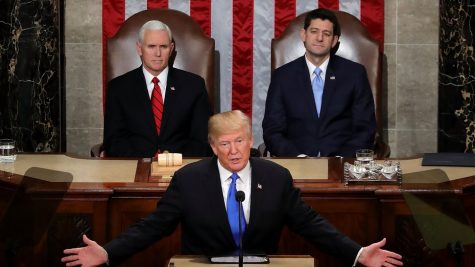Simon Sez: Frozen

I must admit that I have a bit of a guilty pleasure. I am a total sucker for kid’s movies. I don’t particularly know why; frankly I find the vast majority of them to be awfully cringey or poorly executed. By my own logic, I should absolutely abhor them with such unmitigated fury that the mere mention of such banes of humanity should leave me a hair trigger short of apoplectic bloodlust. In my just-shy-of twenty-one years of life, however, I have come to realize that the universe works in very mysterious ways. Thus, despite all evidence justly pointing toward my hatred of all –or at least most– things Disney and Pixar, that is not the case. Somewhere between my reception and interpretation of such menaces to society, my hatred for the corny plots and conflicts, and my own hatred for myself, clash in a double negative, which coalesce into a brilliant expression of love; that’s my standing theory, at least. So, yes, I’m very fond of kids movies, and I absolutely adore Frozen.
Honestly, this whole matter has me stuck in a pseudo-existential crisis, as my universal hatred for all things organic or otherwise –so basically everything– is an identity that I have come to appreciate. My capacity for affection, most especially for such a lame, overhyped movie, reminds me that my heart is not yet truly consumed by the blackest pits of Selzar. I resent that. Regardless, there are certain issues that I have with this movie. Let’s talk about that.
Spoilers…Duh
First and foremost, I’m a sucker for romance, and I thought the admittedly forced relationship between Anna and Hans to be absolutely lame. Yes, I know what I said; somehow, the downright fantastical nature of their sudden desire to marry was so lame, it was good! Let me explain: I personally believe that the surrealness of their sudden budding love –however one-sided it may have been– made for an excellent plot point because it’s something that even Anna’s horribly emotionally disconnected sister, Elsa, can see right through. It sets the tone, informing us of two major articles of information:
- Anna is horribly naive. This is obviously due to the early death of her parents, sure. But I’d also wager that the main source of her desperation to get with Hans has to do with her feelings of hopelessness. She resides in a giant castle, as lonely as can be, and from her perspective, her sister either doesn’t care about her or outright detests her too much to make some time for her.
- This facade of a relationship is important because it tells us massive tidbits of information about the characters of those involved. Anna is young and naive; Elsa is cold and seemingly aloof, but clearly cares about her sister. Lastly, Hans is either just as naive as Anna, or is a bad man, preying on an impressionable lady.
Frankly, I well and truly believe that this one scene could have completely set the stage for the story far better than any cheesy expositional sing along ever could. Nevertheless, this is a movie for children, so I’ll let it slide. This little subplot also becomes a fairly good segway into the ‘main dish’, so-to-speak.
There is one thing about this that bothers me though. I well and truly wanted to believe that Hans was a good guy. I suppose it was because it was so blatantly obvious that he could be a bad guy, that I wanted it to be the opposite. I even found myself convinced, for a while, that he truly was a decent fellow when Anna leaves him in charge of Arendelle and nothing bad happens. My conviction in his innocence as a character is even further reinforced when he takes a party to go find Anna and Elsa, and saves Elsa’s life despite her having attacked them, while having no reason to do so, considering her threat to his potential authority. To that end, I found the twist to actually be disappointingly unrealistic. The movie had more or less spent the last hour or so giving me hard evidence that Prince Hans was a good guy, only to suddenly spit in my face and say “takesies backsies!”. I was horribly offended by the development. Oh, but it gets worse.
I found the resolution of Elsa’s pure familial love to be the ‘cure’ for the murderous frostbite curse that she’d unwittingly placed on her beloved sister, to be sweet. I even found it far more realistic than some ridiculous notion of true love between two people who’d known each other for a day or two, at best. That said, I also felt cheated. We’d had two potential relationships built up for Anna, and in the end, neither of them actually mattered in the grand scheme of things. Great, Anna’s got a boyfriend who is friends with a reindeer. What’s the take away? All I really got from their relationship was a feeling of dread, coming from his adoptive relatives, the trolls, who seem awfully pushy about Kristoff and Anna marrying, ASAP. It gives all kinds of red flags that just leave me disappointed when nothing comes of it.
Frankly, the absolute best plot twist I could have imagined would be for both Kristoff and Hans to be decent fellows, but for Kristoff to be convinced/brainwashed by his troll family that marrying Anna was the only option. It would be far more heartwarming to see the opposite side of familiar bonds, and the darker direction they can take than it was to see good ol’ trooper Hans turn into generic Disney villain number three hundred and seventy two.
One other thing that I found myself appreciating was the build up towards the resolution. Elsa being captured and imprisoned as opposed to suddenly ‘seeing the light’ and returning in a last minute, clutch-princess play of the game was a relief because it meant that simple words weren’t going to be the solution to everything. The fact that this movie had so many dark aspects under the subtext was pleasing, and even the more blatant attempts at unconditional edginess was a relief from all of the fuzzy singing — there was plenty of that, too. More importantly though, we see that Elsa’s decision to run away was not founded totally on selfishness, and that she may have even had the right idea, but the fact that she found herself enjoying such freedom is a moot point.
The bigger takeaway from this is that Elsa came to realize that she has responsibilities to her subjects, and to her sister, and that simply running away doesn’t mean that someone else will handle these responsibilities for her. It was a subtle but no-less appreciated lesson. This is especially so because this was learned in a roundabout way in which the lesson felt a bit more earned than in traditional kids’ plots. It constantly felt like there were things on the line, for this movie. There were no easy solutions, and it also never felt as though every decision was the ‘right’ one.
Thus, as cringey as I found this movie at times, I honestly have to admit that it’s one that I don’t mind rewatching with my niece as often as we do, which is, frankly, more than I care to admit.











